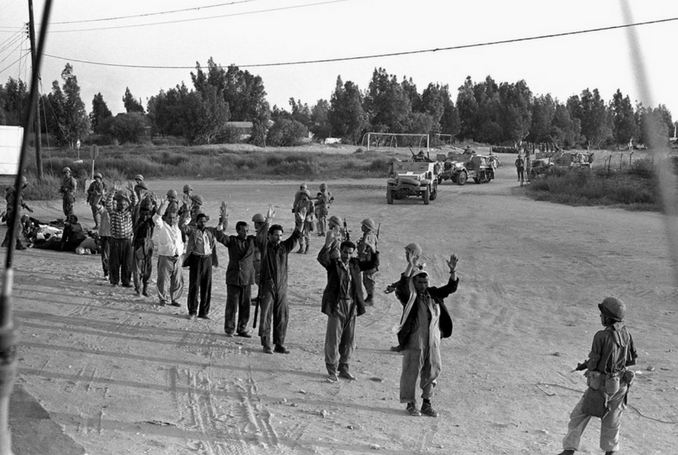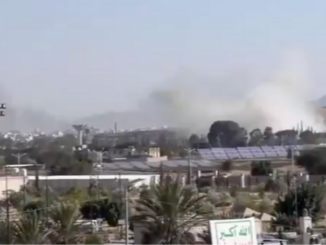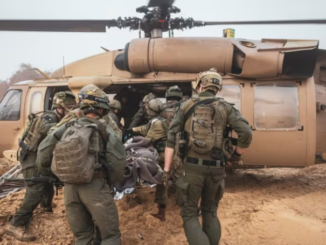
An Israeli journalist specializing in security affairs on Friday revealed that at least 20 Egyptian soldiers were burnt alive by the Israeli army during the 1967 war.
In a series of tweets, journalist Yossi Melman wrote: “After 55 years of heavy censorship, I can reveal that at least 20 Egyptian soldiers were burnt alive and buried by IDF (Israeli Defense Forces) in a mass grave, which wasn’t marked and without being identified contrary to war laws, in Latrun. It happened during the Six-Day War.”
The website of the Israeli daily Yedioth Ahronoth published similar details narrated by Melman.
Breaking: Egypt's President al-Sisi made a phone call with the Israeli PM, during which he raised the issue of the alleged mass grave of the Egyptian soldiers killed during 1967 War.
Israel's PM ordered his military secretary to examine the issue in depth and to update Cairo.
— Mahmoud Gamal (@mahmouedgamal44) July 10, 2022
Melman stressed that late Egyptian President Gamal Abdel Nasser, days before the outbreak of the war, had signed a joint defense agreement with the late King of Jordan Hussein bin Talal, who was in control of the West Bank at the time.
“Egypt deployed 2 commando battalions in the West Bank near Latrun, which was no man’s land. Their mission was to raid inside Israel and take over Lod and a nearby military airfield,” Melman said.
Latrun is located on the road between Jerusalem and Jaffa, about 25 kilometers (some 16 miles) west of Jerusalem. After the 1948 war, an agreement was reached between Israel and Jordan to make it a no-man’s land.
For over 5 decades, Israel has kept secret this mass grave – under a tourist parking lot – which held the bodies of Egyptian soldiers, some of whom were burned alive. #Egypt, these are your friends? https://t.co/qNs3SjFUb8
— Sharmine Narwani (@snarwani) July 8, 2022
In the 1967 war, Israel occupied and annexed Latrun, which is today a suburb of West Jerusalem.
“Fire exchanges took place with the IDF troops and members of Kibbutz Nahshon. Some Egyptian troops fled, some were taken prisoners, and some bravely fought. At a certain point, IDF fired mortar shells and thousands of uncultivated dunams of wild bush in the dry summer were set on fire,” said Melman.
At least 20 Egyptian soldiers died in the bushfire that spread quickly and they had no chance to escape, Melman quoted Zeen Bloch (now 90 years old), who was the military commander of Nahshon, a left-wing Kibbutz – agricultural community – as telling him.
Israeli Prime Minister Yair Lapid said Sunday that US President Joe Biden will carry a “message of peace and hope” to Saudi Arabia.https://t.co/uCUJXu65Cg pic.twitter.com/FzyZRdnOhC
— The Palestine Chronicle (@PalestineChron) July 10, 2022
“The next day IDF soldiers equipped with a bulldozer came to the scene, dug a pit, pushed the Egyptian corpses and covered them with soil. Bloch and some Nahshon members watched with horror as soldiers looted personal belongings and left the mass grave unmarked,” the journalist said.
Melman noted: “The veil of silence suited everybody. The few who knew didn’t want to talk about it. We were ashamed. But above all, it was IDF’s decision in the heat of the war.”
(Daily Sabah, PC, Social Media)








This article reads like a limited hangout … in his book Body of Secrets (2008), James Bamford notes “The Israeli military historian Aryeh Yitzhaki, who worked in the army’s history department after the war, said he and other officers collected testimony from dozens of soldiers who admitted killing POWs. According to Yitzhaki, Israeli troops killed, in cold blood, as many as 1,000 Egyptian prisoners in the Sinai, including some 400 in the sand dunes of El Arish.” Pg 201